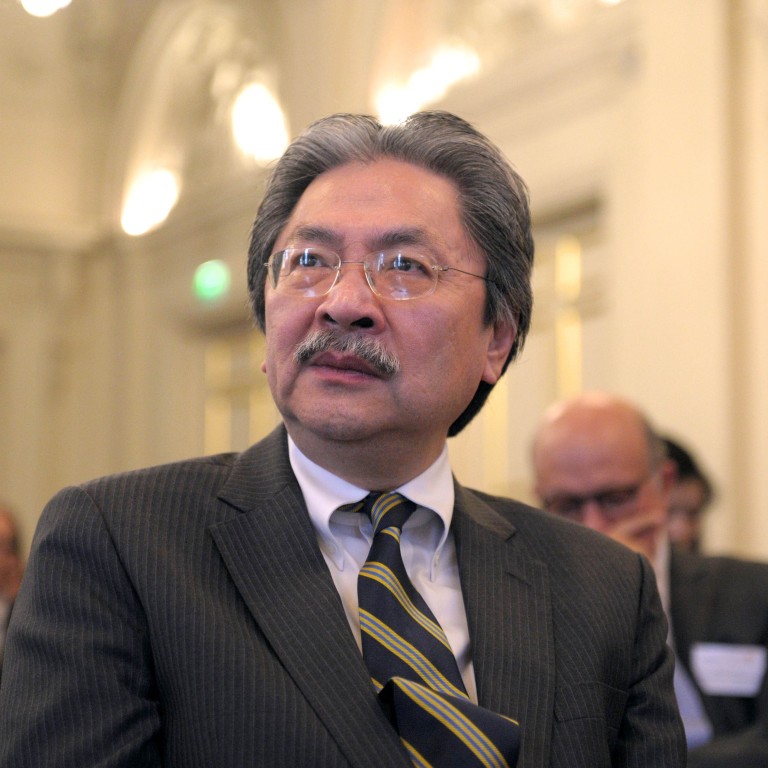
Cooling measures to stay amid risk of property bubble
The government has no intention of dropping property cooling measures as the risk of a property bubble remains high, Financial Secretary John Tsang Chun-wah said on Monday.
At the meeting of the Legislative Council financial affairs panel, Tsang said Hong Kong’s economy was forecast to expand by three per cent this year, with inflation estimated at four per cent for the whole year.
Tsang was briefing lawmakers on Hong Kong’s latest economic situation.
He said property purchases by non-locals and overseas companies had gone down after the introduction of the buyer’s 15 per cent stamp duty in October 2012.
The number of their purchases averaged at a low level of 89 cases a month, or 1.9 per cent of total transactions, in the first 10 months of the year, much lower than the monthly average of 365 cases or 4.5 per cent in the corresponding period last year, according to the Financial Secretary’s Office.
The mortgage-to-income ratio was 54 per cent during the third quarter. The 1993-2012 average was 47.9 per cent.
Tsang said the total supply of flats in the coming few years had increased further from 70,000 units as estimated at end-June this year to 72,000 units as estimated at end-September, the highest since September 2006.
He also promised to put more efforts into increasing flat supply.
While officials tried to paint a rosy picture for the overall economic outlook, some legislators warned of possible impacts of the planned Occupy Central campaign on the economy. Pan-democrats hope to press Beijing to give Hong Kong full democracy by the campaign in which protesters will mobilise to block main roads in Central.
Unionist legislator Wong Kwok-hing said: “The recent political situation in Thailand shows that protests could heavily harm the economy. I hope the government can make some preparations in case the Occupy Central campaign planned by the opposition camp gets out of control.”
Legislator Chan Kam-lam, of Democratic Alliance for Betterment and Progress of Hong Kong, shared similar views and asked the government to assess the impact of Occupy Central on the economy. Chan warned: “Financial officials should not be too insensitive to the political situation.”
At Monday’s meeting, some legislators also asked the government to study broadening the tax base, while others wanted the government to pour more resources into helping the needy.

